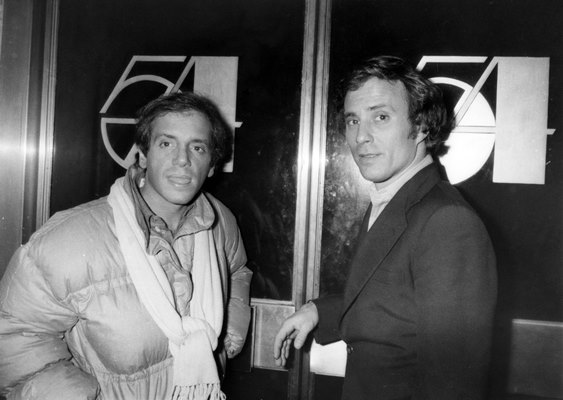Co-owner Ian Schrager looks back at the wild snowball of disco, celebrity, drugs, and sex: his nightclub Studio 54, the 1970s’ most exclusive and infamous nightclub. Director Matt Tyrnauer collects veterans of the wild scene to share their memories on film and reveals the paradox of a place that celebrated diversity and freedom while embodying the ugliest kind of snobbery.
Brooklynite Schrager got together with college buddy Steve Rubell to remodel an old theater in the then-seedy theater district. They only aimed to launch the biggest, sexiest nightclub in Manhattan, but neither was prepared when Studio 54 blew up into the most famous nightspot in the world. The waggish Rubell adored his elevation to gatekeeper and big shot, schmoozing with Halston, Bianca Jagger, Liza Minnelli, and Andy Warhol. Meanwhile, frenzied throngs clogged the sidewalks in front of the club, baying to be let in.
“When you walked through those blacked-out doors, you were in another world,” recalls one reveler. Studio 54 welcomed gay and transgender people, embraced a certain kind of New York nonconformity, and let guests get their freak on with ample sex and drugs. At the same time, the club’s brutal, arbitrary door policies and fawning starfucker ethos set a nasty tone. The movie makes the point that 54’s rise helped hatch modern celebrity culture. Probably true, but watching Rubell taunt hopeful clubgoers at the door makes for unpleasant viewing.
Now rich and famous, Rubell and Schrager got cocky. And greedy. Playing fast and loose with liquor laws, storing drugs on the club’s premises, and skimming off huge amounts of money from the business, the pair attracted the attention of law enforcement. Prosecutor Peter Sudler is blunt about their gluttony: “They were real pigs about it.” Envy played a part in their downfall, too. Writer Steven Gaines says: “People started to get angrier and angrier at Steve Rubell and Studio 54 because they couldn’t get in.” Whether they were victims of the haters or simply blatant lawbreakers asking for trouble, Rubell and Schrager were busted in a dramatic raid.
Even fixer and legal reptile Roy Cohn (a hypnotically repellent presence in the film) couldn’t keep the golden boys out of jail, and they went to prison. There they ratted out other tax cheats to reduce their own sentences, an act that Schrager seems #sorrynotsorry about, and they set about rebuilding their lives when they got out.
Studio 54 tries hard to re-create the thrill of the famous club, and mostly succeeds. Footage of people disco dancing tends to look alike, but still photos point out how over-the-top the bacchanal was. Shots from the era are still shocking.
Where the film fails is where a recent crop of fashion and nostalgia documentaries also stumble: it wallows in empty-headed praise for its subject with little critical thinking or discernment. In the times we live in, bad-boy defiance of the law by outer-borough sharpies feels less charming than it used to. And for a film so breathless about fame, few actual celebrities make an appearance; many, including Rubell, are now dead. So two and a half cheers for Studio 54, an oasis of pleasure and liberation run by Mean Girls rules that we have somehow not managed to outgrow.







Leave A Comment